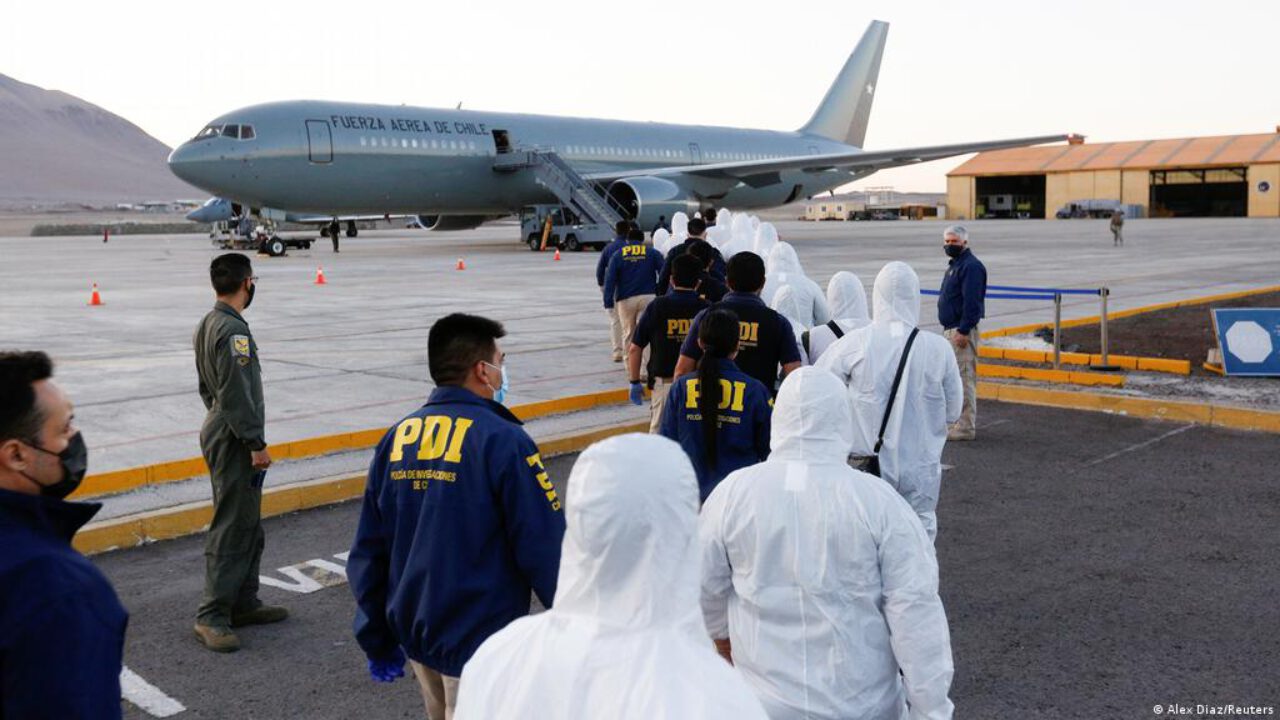RIO DE JANEIRO, BRAZIL – The Chilean government “should end its summary deportations of Venezuelans” under its migration law “and ensure that all expulsions comply with international human rights law,” Human Rights Watch (HRW) said Wednesday.
The organization alleges a series of serious violations of the fundamental rights of expelled Venezuelan migrants, such as impediments to access to telephone calls and lawyers, summary deportations on weekends (when appellate courts are closed), and separation of families, among others.
After reviewing 21 court rulings and more than 250 deportation orders, the international body also identified “violations of due process, including the right to be heard and to present evidence” before deportation is finalized.
Read also: Check out our coverage on Chile
“Chile’s courts have shown that many Venezuelans seeking to escape the devastating crisis in their home country were deported without due process, violating elementary standards of international law,” said HRW’s director for the Americas, José Miguel Vivanco, according to the document.
Along the same lines, Vivanco pointed out that it is “contradictory” that the government headed by Sebastián Piñera “strongly condemns the abuses in Venezuela while ignoring the rights of Venezuelans in its eagerness to deport them to a country where their lives could be in danger.”

It is estimated that Chile is home to about 1.4 million migrants -equivalent to 7% of its population- and to date, the Venezuelan community is the largest, with 457,000 people.
HRW pointed out that the Chilean government announced the expulsion of 1,500 people throughout 2021 in 15 charter flights and that, according to the Jesuit Migrant Service (SJM), by April of this year, it had deported 294 people, in most cases “without judicial control” and affecting mainly Venezuelans.
The Government policy is set out in a law that contemplates the expulsion of those migrants who are subject to judicial proceedings to serve their sentence in their country and those who entered the country clandestinely and are in an irregular administrative situation.
“ABSENCE OF DUE PROCESS”
According to HRW’s review, in the vast majority of cases, “the (Chilean) police officers did not allow the migrants to object to their deportation before the order was issued,” thus undermining rights enshrined in international treaties ratified by the Chilean state, such as “their right to be heard and to present evidence to challenge the expulsion.”
The Supreme Court annulled several deportation orders in recent months because they were the product of an “insufficient administrative contentious procedure”, but in almost all cases, this annulment followed the deportation, HRW said.
“The interviews conducted by HRW and the resolutions handed down in these cases demonstrate that, in fact, the Chilean government deprived migrants of the possibility of fully exercising the rights guaranteed by international law,” the report states.
“COLLECTIVE DEPORTATIONS”
According to HRW, the decisions do not refer to the individual circumstances of each case, “which do not appear to have been taken into account.” Although administrative resolutions were presented for each person deported, “the language used in various cases was practically identical, and no case-by-case analysis was carried out.”
In analyzing deportations in Chile, UN agencies in the country have repeatedly stressed that all persons have the right to have their circumstances assessed on an individual basis, including the need for protection and the risks that deportation could pose to their life, liberty, or integrity, HRW recalled.
“SEPARATION OF FAMILIES”
Summary deportations, the document states, prevent many Venezuelan citizens from proving family ties in Chile, especially considering that both marital and parental status are not registered with the Chilean state.
To this is added the difficulty of obtaining certificates or official documents both in Venezuela and abroad, since the consular services of the Caribbean country are “limited”.
HRW, meanwhile, assures that human rights lawyers stated that some people about to be expelled do not mention their family ties to avoid that other members of their families are also deported.
“These deportations may violate children’s right to family unity. Chile must prioritize the best interests of children and facilitate their reunification with their parents,” the NGO emphasized.

